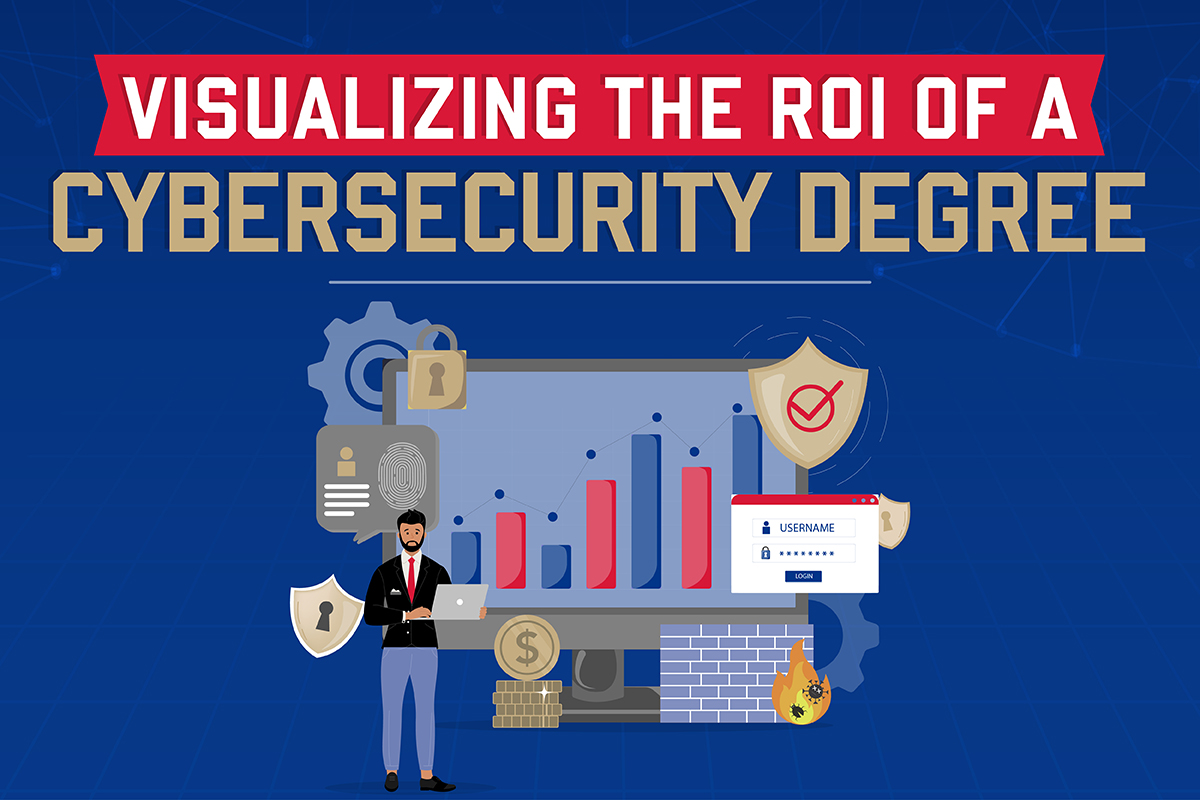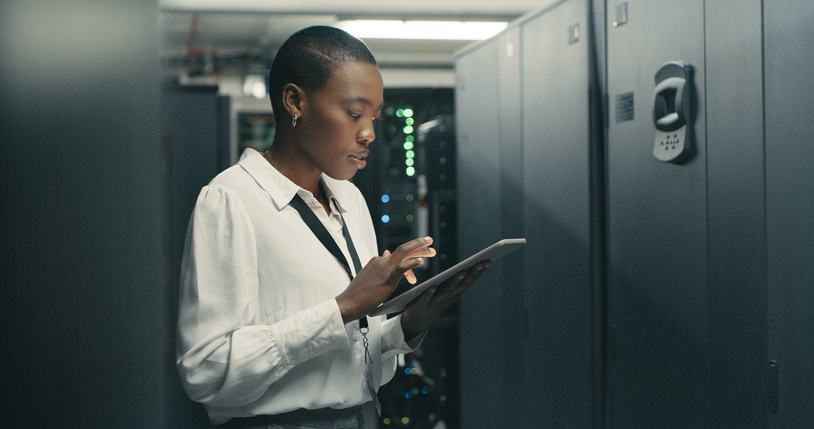What Is SOC 2 Compliance, and Why Is It Important?
Written by:
University of Tulsa
• Jan 4, 2024

As technology’s presence continues to expand, businesses must remember that the benefits of the digital age come with certain risks. When professional services firm PwC surveyed business leaders in 2022, the top business risk that the survey respondents identified was the possibility of cyber attacks becoming more extensive and more frequent. About 40% of the business leaders surveyed viewed cyber attacks as a serious risk, while 38% viewed them as a moderate risk.
To realize the full benefits of technology, organizations need to maintain strong controls over data and automated systems. A powerful part of the effort to secure data and systems is obtaining a System and Organization Controls 2 (SOC 2; pronounced “sock two”) compliance audit. However, not everyone is familiar with this fundamental framework for defending against unauthorized intrusion and cyber attacks.
What is SOC 2 compliance, and what does a SOC 2 compliance audit entail? Individuals who are considering an advanced education and career in cybersecurity can benefit from learning about the role these audits play in helping organizations protect data and systems.
The Risks That Make SOC 2 Compliance Audits Necessary
Unfortunately, the risks to data and systems continue to grow, and the statistics on cyber attacks are sobering. For example:
- Cyber attacks are on the rise. Cybersecurity Ventures has estimated that global cyber attacks will increase by 300% between 2015 and 2025. In 2025, the annual cost associated with those attacks could total $10.5 trillion.
- Complaints about internet-based crime are growing. In 2022, the FBI received 800,944 complaints regarding internet crime. That number represented a 128% increase in complaints since 2018. The complaints spanned a wide range of crimes, from phishing to data breaches to fraud.
- Ransomware attacks in particular are surging. Businesses were the victims of a resurgence in ransomware attacks in early 2023, according to cyber risk assessment firm Black Kite; the number of victims almost doubled between April 2022 and March 2023. The most targeted victims were organizations in manufacturing; educational services; and professional, scientific, and technical services. A ransomware attack is an attack in which a malicious actor uses malware to render data and systems unusable until the victim pays a ransom.
While it may be natural to assume that cyber attacks are a risk only at relatively larger businesses, that’s not the case. In 2020 and 2021, for example, data breaches at small businesses around the world increased by 152%, while data breaches at larger organizations increased by 75%, according to a cyber risk assessment firm RiskRecon. The U.S. Small Business Administration (SBA) has noted that cybercriminals are attracted to small businesses because these businesses have valuable data and systems, but may not have implemented the security controls that larger firms have implemented.
What Is SOC 2 Compliance, and What Does a SOC 2 Compliance Audit Entail?
Today’s businesses often outsource certain functions (for example, payroll, accounting, data analytics, or claims processing) to other organizations. However, even when businesses outsource functions, they can still be held responsible for controls over those functions. What SOC 2 compliance audits do is provide information on controls over data and systems at the organizations that perform outsourced functions (those organizations are referred to as service organizations).
The American Institute of Certified Public Accountants (AICPA) developed the security framework for SOC 2 compliance audits to help ensure that service organizations manage data and systems responsibly and to establish trust between service organizations and their business partners. According to the AICPA, reports from SOC 2 compliance audits can be helpful in areas such as vendor management, organizational oversight, risk management, and regulatory oversight.
What Do SOC 2 Compliance Audits Cover?
Reports from SOC 2 compliance audits provide information regarding a service organization’s controls covering the following trust services criteria:
- Security, availability, and processing integrity of systems that the service organization uses to process information
- Confidentiality and privacy of the information that a service organization’s systems process
A SOC 2 compliance audit can issue two types of reports that cover a service organization’s controls:
- Type 1 — for a point in time
- Type 2 — for a period of time (e.g., several months)
Are Service Organizations Required to Obtain SOC 2 Compliance Audits?
Service organizations aren’t required by law to obtain SOC 2 compliance audits. However, they could be subject to other requirements that necessitate SOC 2 compliance audits. For example, a service organization’s contracts with its customers could require it to obtain a SOC 2 compliance audit.
Even if a service organization has no obligation to obtain a SOC 2 compliance audit, undergoing such an audit is still a good way to demonstrate its dedication to and regard for strong cybersecurity.
Who Conducts a SOC 2 Compliance Audit?
Service organizations hire external certified public accountants to conduct SOC 2 audits. Hiring external auditors helps ensure that the auditors will be independent and capable of complying with relevant auditing standards.
Potential Benefits of Obtaining a SOC 2 Compliance Audit
With issues such as data privacy and confidentiality, cybersecurity, and cybersecurity ethics becoming increasingly important, the benefits of obtaining a SOC 2 compliance audit continue to expand. Overall, what SOC 2 compliance demonstrates is a service organization’s commitment to securing its data and systems. More specifically, obtaining SOC 2 compliance audits enables service organizations to:
- Gain assurance that they’ve implemented controls to protect data and systems
- Build and retain trust with customers
- Reduce the risk of incurring costs associated with breaches of data and systems
- Maintain a favorable reputation
- Remain competitive in the marketplace with other service organizations that obtain SOC 2 compliance audits
- Identify potential vulnerabilities and ways to strengthen controls
Obtaining a SOC 2 compliance audit can also help a service organization highlight the importance of its controls to its employees, spurring conversations about the vital need to secure data and systems.
SOC 2 Compliance Audits: A Key Component of Cybersecurity
When it comes to strengthening a service organization’s cybersecurity, knowing what SOC 2 compliance is and why it’s important is crucial. Examining controls over data and systems is a critical endeavor that helps organizations defend against the increasing threat of cyber attacks.
Individuals who have an interest in furthering their cybersecurity expertise can explore The University of Tulsa’s online Master of Science in Cyber Security degree program to learn how it can help them achieve their career objectives. Preparing students for jobs and leadership roles in cybersecurity, the program can be a stepping stone to a career in safeguarding data and systems. Start advancing on the cybersecurity career path today.
Recommended Readings
4 High-Level Cybersecurity Careers — And How to Prepare for Them
Cyber Threat Analyst Career Overview
The Importance of Cybersecurity Leadership
Sources:
4. Black Kite, Ransomware Threat Landscape Report 2023
Cybersecurity & Infrastructure Security Agency, #StopRansomware Guide
Cybercrime Magazine, “Cybercrime to Cost the World 8 Trillion Annually in 2023”
FBI, Internet Crime Report 2022
ISACA, “Four Steps to Achieve SOC 2 Compliance”
LogicGate, “SOC 2 Compliance: Basics, Benefits, Types & Next Steps”
McKinsey & Co., What Is Cybersecurity?
MICPA, “How to Choose the Right SOC 2 Auditor”
PwC, PwC Pulse Survey: Managing Business Risks
RiskOptics, 6 Reasons Why You Need SOC 2 Compliance
RiskRecon, Small Business, Mighty Attack Surface
RSI Security, Who Needs to Be SOC 2 Compliant?
StrongDM, “SOC 2 Type 1 Guide: Everything You Need to Know”
The HIPAA Journal, “SOC 2 Compliance Checklist”
U.S. Small Business Administration, Strengthen Your Cybersecurity


